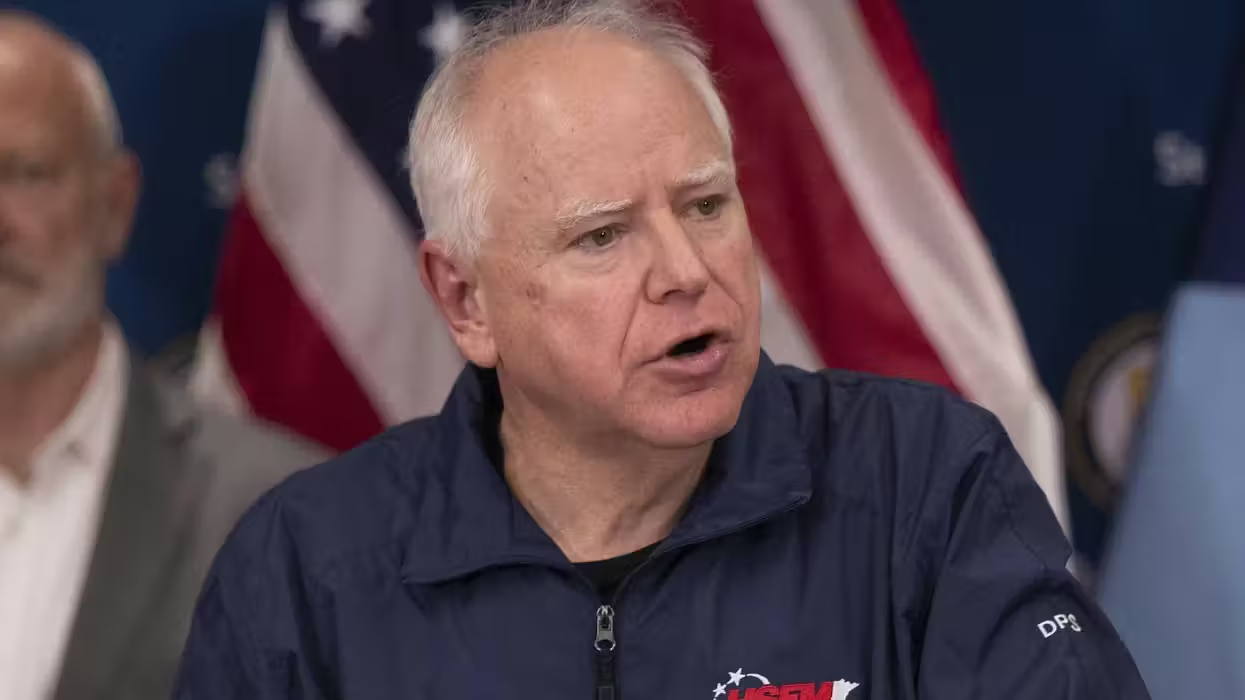As the U.S. begins its war campaign against the Islamic State, the most difficult challenge lies ahead as military advisers prepare to move forward with plans to arm and train Syrian and Kurdish rebel forces to stop enemy advancement and recapture territory. But U.S. military advisers will be up against four years of bloodletting in Syria that has turned friend into foe, given rise to more fierce terrorist organizations and led to battlefields that no longer recognize rules of combat, but teeter on the grotesque.
Limited airstrikes won't work to combat the Islamic State in Syria in the long run, military and intelligence officials told TheBlaze: For any military action to be effective, it will need to be fully vested in cutting off the Islamic State's expansion, and that's going to mean boots on the ground.
Promises from President Barack Obama and British Prime Minister David Cameron that there will be no ground troops during this new conflict against an old enemy ideology is "dishonest and naive," said a Western official familiar with the militant group.
 Buildings lie in ruins after years of conflict between Syrian government forces and rebels in the northern city of Aleppo, Sept. 21, 2014. (ZEIN AL-RIFAI/AFP/Getty Images)
Buildings lie in ruins after years of conflict between Syrian government forces and rebels in the northern city of Aleppo, Sept. 21, 2014. (ZEIN AL-RIFAI/AFP/Getty Images)
"The idea that we're not committing any boots on the ground is not right," the official said. "We will have trainers on the ground and pilots in the air that will all be at risk and frankly, nobody is certain that this limited action will be enough to stop what is happening anyway. I'm not suggesting that our leadership doesn't realize this, but the idea that we are not going to have any casualties is wishful thinking and not accurate."
The Islamic State, led by Abu Bakr Al-Baghdadi, numbers more than 30,000 militant fighters and is still growing, according to CIA estimates. While Congress has given the Obama administration its blessing to arm and train vetted rebel fighters, it will be difficult to gauge who to trust — a reality unfortunately seen all too well in Afghanistan, where local security forces have turned on NATO troops.
Monday's airstrikes in Syria targeting the Islamic State and the newly emerging Al Qaeda-affiliated group Khorasan killed more than 70 Islamic State militants and led to more than 300 injuries, according to estimates from the U.K.-based Syrian Observatory for Human Rights, an anti-regime nonprofit monitoring the situation in the country.
In Wednesday's new episode "Total Confrontation," TheBlaze TV’s For the Record will examine how the threat from the Islamic State and Khorasan is the same threat Al Qaeda has propagated in its doctrine since the group was founded.
It will be difficult to gauge whether the strikes successfully took out any major Islamic State commanders because the strikes "weren't really a surprise to the Islamic State — we've been talking about it for some time," said a former military official who works in the region.
"Many of Baghdadi's commanders are former senior Iraqi commanders who would have prepared for this particular kind of air assault and more than likely had fled their area of operations and stayed clear of any of these retaliatory strikes," the official said. "These are highly skilled commanders under Baghdadi and some of them were trained by us. They have demonstrated that they are extremely good."
Gen. Martin Dempsey, chairman of the Joint Chiefs of Staff, told reporters in Washington, D.C., Tuesday that the U.S. we wanted to ensure that the Islamic State knows "they have no safe haven, and we certainly achieved that."
The Western official, who spoke to TheBlaze only on condition of anonymity, said to take back territory from the Islamic State, "It will require more than airstrikes and working with rebel forces, which presents its own obstacles — particularly if there is no one on the ground to direct these rebel forces when head off into battle."
One of the greatest difficulties for Western military advisers, CIA and special forces trainers who will be operating in the region will be vetting the rebel fighters. For the military strategy to succeed, advisers will need to ensure the rebels won't eventually turn their training on Western forces, as seen in Afghanistan's so-called green-on blue attacks, where members of security forces have killed NATO troops. Further, U.S. officials say, it will be difficult to keep rebels focused on taking out the Islamic State instead of shifting their fight and focus on Syrian President Bashar Assad's military.
 Demonstrators chant pro-Islamic State slogans as they carry the group's flags in front of the provincial government headquarters in Mosul, 225 miles northwest of Baghdad, June 16, 2014. (AP Photo, File)
Demonstrators chant pro-Islamic State slogans as they carry the group's flags in front of the provincial government headquarters in Mosul, 225 miles northwest of Baghdad, June 16, 2014. (AP Photo, File)
More than 170,000 people, include tens of thousands of women and children, are estimated to have been killed since the fighting in Syria began more than four years ago, according to Syrian Observatory for Human Rights statistics, which provides one of the only means for tracking casualties.
Syrian activist Abu Rami, who recently fled the besieged city of Homs for Turkey, told TheBlaze in a phone call that for more than three years, the U.S. had promised aid to rebels who had been vetted, but failed to do so on a number of occasions. Rami said that failure led to a series of breakdowns that allowed groups like the Islamic State and Jabhat al-Nusra, Syria's main Al Qaeda affiliate, to rise to prominence because "they filled the vacuum that nobody else was filling and now it's difficult to access who the enemy is and who is the friend."
In April, Rami watched as rebels in his hometown took one last stand against Assad's forces. The rebels had been weakened by a more than yearlong blockade that had left residents starving and crushed morale. The rebels ultimately surrendered.
"When everything was relatively clear, nobody came to the aid of the Syrian people," Rami said. "Now that it's a mess and muddled, the U.S. and Great Britain want to take action? I can't even tell friend from foe, how will they? This is a situation that will not fixed in the short term but something that will last decades."
—
Follow Sara A. Carter (@SaraCarterDC) on Twitter

 Buildings lie in ruins after years of conflict between Syrian government forces and rebels in the northern city of Aleppo, Sept. 21, 2014. (ZEIN AL-RIFAI/AFP/Getty Images)
Buildings lie in ruins after years of conflict between Syrian government forces and rebels in the northern city of Aleppo, Sept. 21, 2014. (ZEIN AL-RIFAI/AFP/Getty Images)






